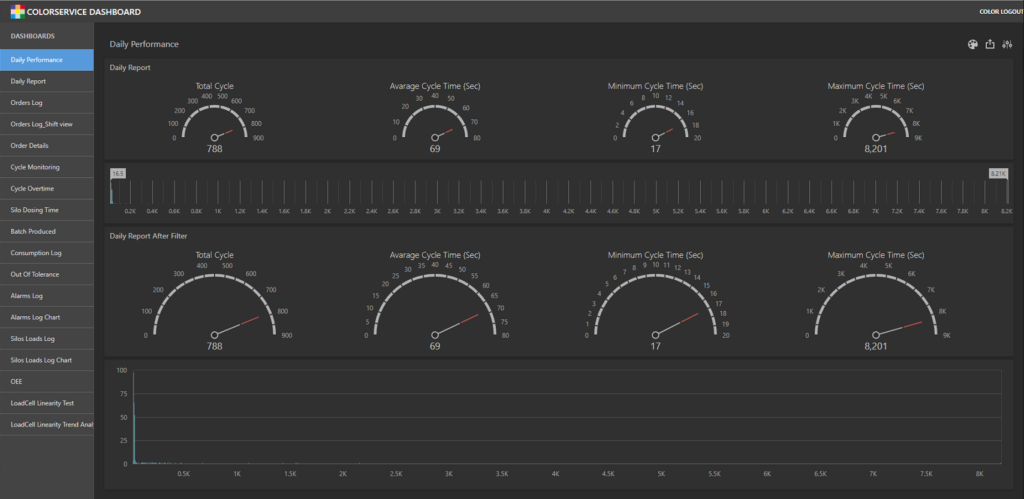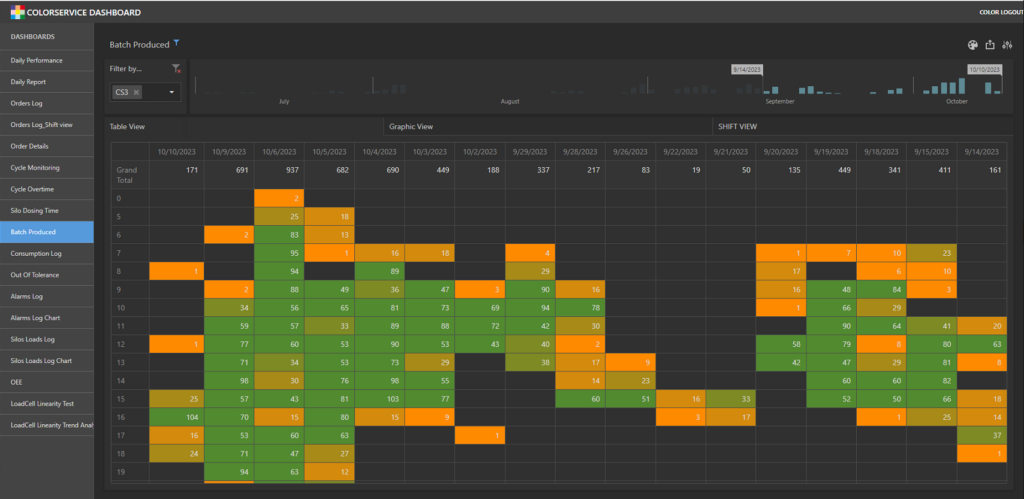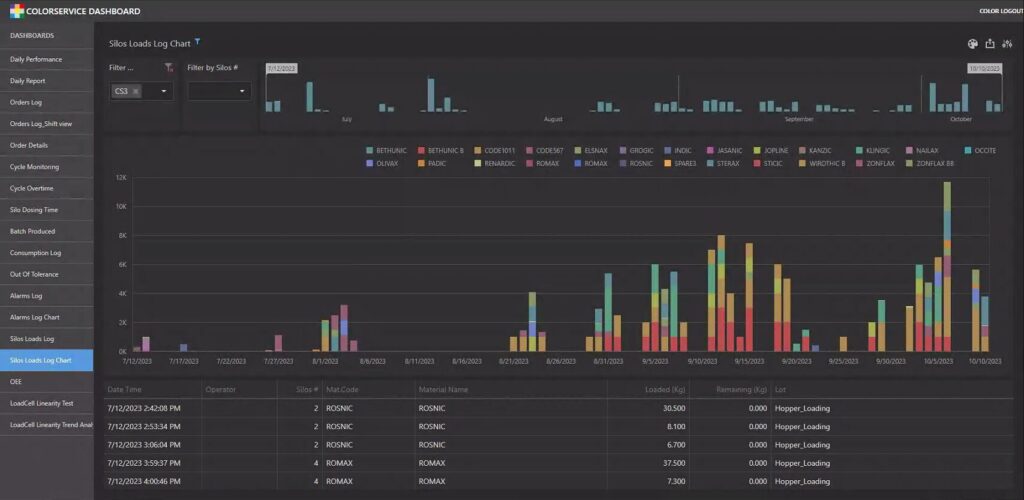ERP Interface
Enterprise Resource Planning (ERP) systems are critical for managing business operations, from inventory management to production planning. For Color Service, specializing in automated dosing systems for powders and liquids, ERP integration ensures seamless and efficient production processes.

The Importance of ERP in Manufacturing
ERP systems unify various company functions, enabling better material management and production tracking. In industries like textiles, rubber, tire, plastics or cosmetics, where accurate dosing is vital, ERP integration with dosing systems becomes essential. Without this, manual data entry can lead to errors and inefficiencies, slowing production and increasing costs.
Challenges Without ERP-Dosing Integration
Without ERP integration, companies risk human error when manually transferring data, which can result in incorrect dosages and product defects. Additionally, production delays arise when operators must manually input data into dosing machines, leading to inefficiency. Inventory management also suffers, as the ERP cannot track real-time usage, causing stock discrepancies.

Benefits of ERP-Dosing System Integration
Integrating Color Service’s dosing systems with ERP platforms eliminates these issues. Production orders from the ERP system are automatically sent to dosing machines, reducing manual input and the risk of errors. Real-time data from dosing systems improves inventory accuracy and allows for better production planning, enhancing overall efficiency.
Customization and Scalability
Color Service’s dosing systems are compatible with various ERP systems, such as SAP or Oracle, making them flexible and scalable. As production needs grow, this integration continues to operate smoothly, enabling companies to scale without costly system changes.
Integrating ERP systems with Color Service’s dosing solutions enhances precision, reduces errors, and improves inventory management, leading to more efficient and optimized production processes for businesses across industries.


